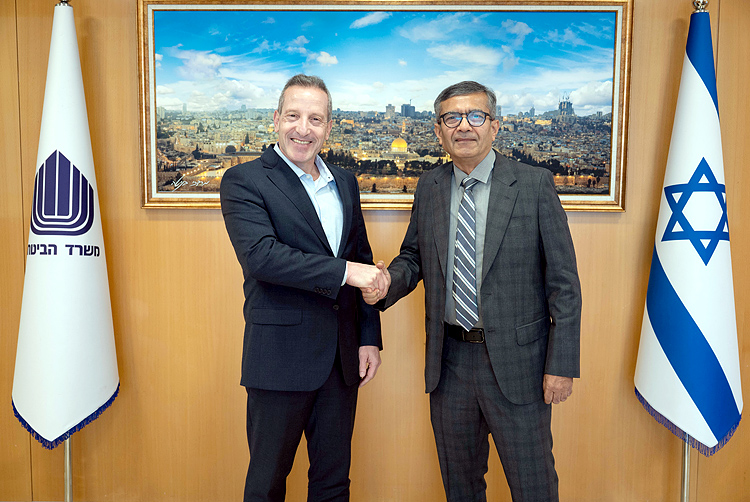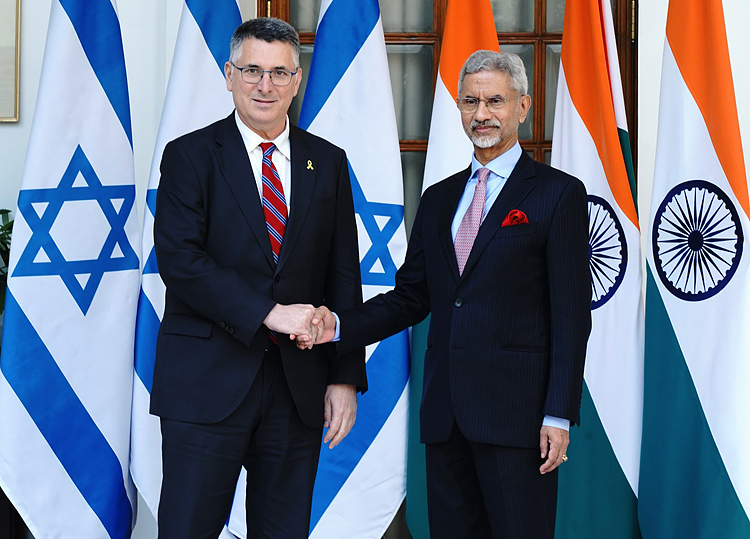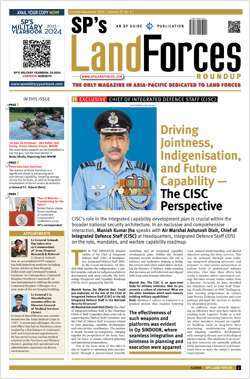INDIAN ARMED FORCES CHIEFS ON OUR RELENTLESS AND FOCUSED PUBLISHING EFFORTS

The insightful articles, inspiring narrations and analytical perspectives presented by the Editorial Team, establish an alluring connect with the reader. My compliments and best wishes to SP Guide Publications.

"Over the past 60 years, the growth of SP Guide Publications has mirrored the rising stature of Indian Navy. Its well-researched and informative magazines on Defence and Aerospace sector have served to shape an educated opinion of our military personnel, policy makers and the public alike. I wish SP's Publication team continued success, fair winds and following seas in all future endeavour!"

Since, its inception in 1964, SP Guide Publications has consistently demonstrated commitment to high-quality journalism in the aerospace and defence sectors, earning a well-deserved reputation as Asia's largest media house in this domain. I wish SP Guide Publications continued success in its pursuit of excellence.
- All about HAMMER Smart Precision Guided Weapon in India — “BEL-Safran Collaboration”
- US to sell $93 million precision artillery, Javelin and Excalibur projectiles to India
- US to sell $93 million precision artillery, Javelin and Excalibur projectiles to India
- India, Germany deepen defence ties as High Defence Committee charts ambitious plan
- True strategic autonomy will come only when our code is as indigenous as our hardware: Rajnath Singh
- India-Israel Joint Working Group Meeting on defence cooperation to boost technology sharing and co-development
- G20 Summit: A Sign of Global Fracture
India-Israel Joint Working Group Meeting on defence cooperation to boost technology sharing and co-development
The 17th meeting of the India-Israel Joint Working Group (JWG) on Defence Cooperation, held in Tel Aviv, reaffirmed the deep and strategic partnership between the two nations. The signing of the defence cooperation coincides with, and is reinforced by, the visit of Israel's Foreign Minister Gideon Sa'ar to India and his talks with EAM S. Jaishankar.

The 17th meeting of the India-Israel Joint Working Group (JWG) on Defence Cooperation was held in Tel Aviv, reaffirming the deep and strategic partnership between the two nations. The JWG meeting was co-chaired by Defence Secretary Rajesh Kumar Singh and Director General of the Israeli Ministry of Defence Major General (Res.) Amir Baram.
Major highlight of the meeting was the signing of a Memorandum of Understanding (MoU) on Defence Cooperation, which establishes a unified framework to further strengthen the robust defence relationship between India and Israel.
A major highlight of the meeting was the signing of a Memorandum of Understanding (MoU) on Defence Cooperation, which establishes a unified framework to further strengthen the robust defence relationship between India and Israel. The MoU aims to guide future collaboration, providing a shared vision and policy direction for enhancing strategic, technological, and industrial ties.
The agreement identifies a wide range of cooperation areas that promise mutual benefit, including strategic dialogues, training and skill development, defence industrial collaboration, and capacity building in science and technology, research and development, and technological innovation. Additionally, it places strong emphasis on emerging domains such as artificial intelligence (AI) and cybersecurity.
Through this MoU, both nations will enable the sharing of advanced technologies and actively promote co-development and co-production initiatives, strengthening their respective defence ecosystems.
Both nations will enable the sharing of advanced technologies and actively promote co-development and co-production initiatives, strengthening their respective defence ecosystems.
During the meeting, the JWG reviewed ongoing defence cooperation projects and gains achieved through existing collaborations. Both sides recognised the complementary strengths of India and Israel in areas such as technology innovation, manufacturing, and operational capability enhancement.
The delegations also explored potential avenues for future cooperation, especially in cutting-edge technology and capacity building. In addition, discussions covered regional and global security challenges, including the shared threat of terrorism, with both sides reaffirming their commitment to collective security and counterterrorism efforts.

Visit of Gideon Sa'ar & talks with Jaishankar
The signing of the defence cooperation MoU between India and Israel coincides with, and is reinforced by, the visit of Israel's Foreign Minister Gideon Sa'ar to India and his talks with India's Foreign Minister S. Jaishankar. Gideon Sa'ar on his first official visit to India as Israeli Foreign Minister touched wide array of bilateral relations, covering strategic cooperation, defence, emerging technologies, agriculture, and trade.
The two sides are moving their partnership into a more advanced phase, combining defence, technology, industry, and strategic alignment. The visit is both symbolic and substantive: symbolically signalling the depth of the relationship, substantively delivering an agreement to deepen cooperation.
Additionally, talks also included cooperation in semiconductors, AI, cyber-security, connectivity (such as the India-Middle East-Europe Economic Corridor) and people-to-people ties.
Arms and technology cooperation
Israel is among India's top arms suppliers, alongside Russia and France and the US.
Israel has supplied key systems or co-developed, like Barak-8 Surface-to-Air Missile (SAM). The SAM was jointly developed by Israel Aerospace Industries (IAI) and India's DRDO and deployed by both the Indian Navy and Air Force.
India has also procured Israeli unmanned systems like Heron & Searcher UAVs, which are the main long-range surveillance drones for border monitoring.
Moreover, the Indian military also uses Spike Anti-Tank Missiles, Spyder Air Defence System and Phalcon AWACS (Airborne Warning and Control System) built on Russian IL-76 platforms.
Manish Kumar Jha is a Consulting & Contributing Editor for SP's Aviation, SP's Land Forces and SP's Naval Forces and a security expert. He writes on national security, military technology, strategic affairs & policies.





